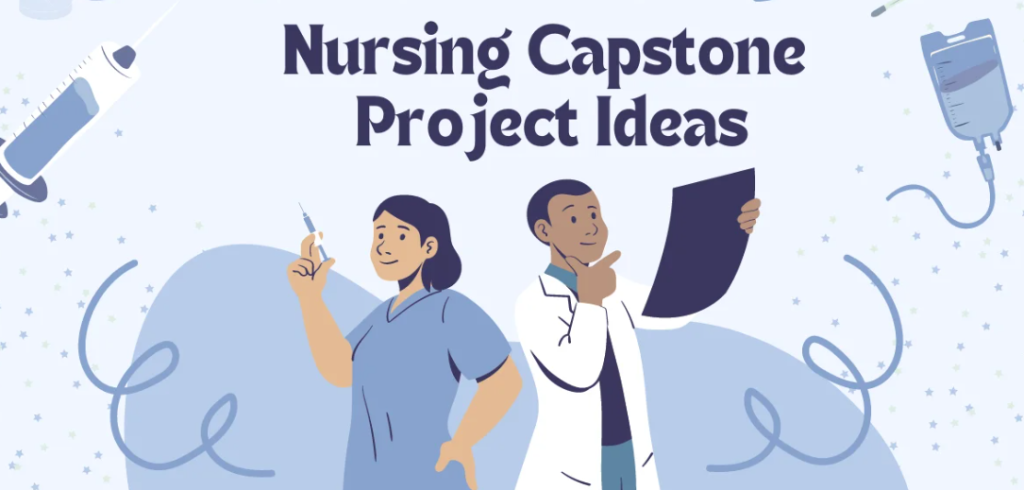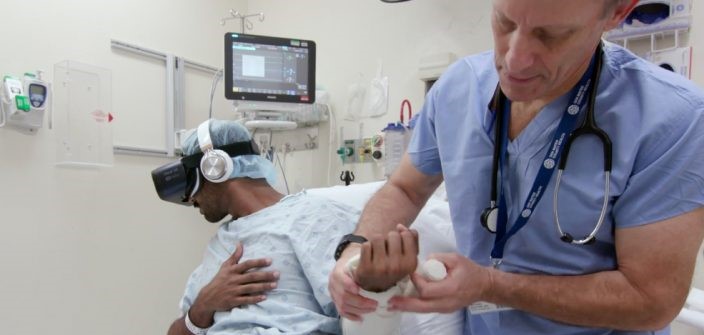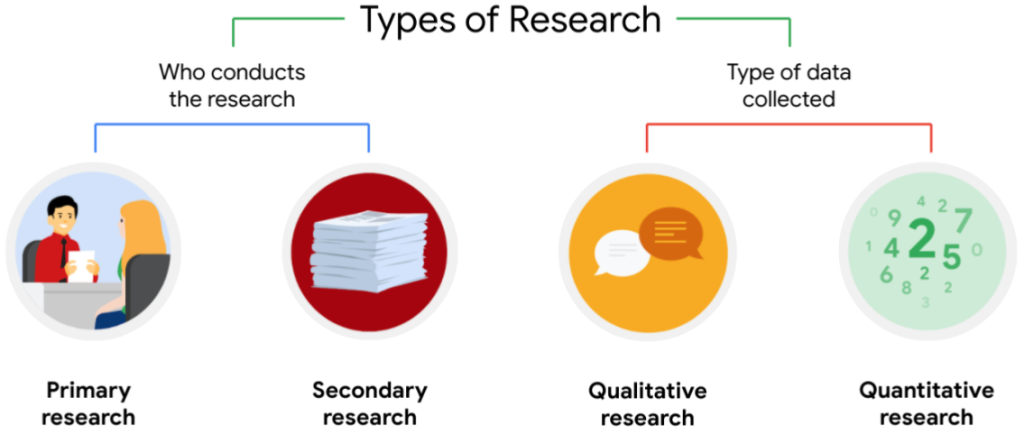
Table of Contents
The culmination of your nursing education is the capstone project, a pivotal moment where you showcase your accumulated knowledge, critical thinking skills, and passion for patient care. This project is a chance to delve deep into a specific area of nursing that resonates with you, conducting research, analyzing data, and presenting your findings with a clear voice and persuasive argument.
Choosing the right nursing capstone project ideas can feel overwhelming. With so many potential avenues to explore, finding the perfect fit for your interests and skills can be a challenge. To help guide you, here are 20 compelling nursing capstone project ideas that span various specialties and address pressing healthcare concerns:
What is a Nursing Capstone Project?
The purpose of a nursing capstone project is to provide students with an opportunity to synthesize the knowledge and skills they have acquired throughout their nursing education and apply them to a real-world problem or issue. It serves as a culminating experience that allows students to:
- Demonstrate their understanding of nursing theory and practice: The project requires students to research, analyze, and apply their knowledge to a specific area of nursing practice.
- Develop critical thinking and problem-solving skills: Students must identify a problem, develop a solution, and evaluate the effectiveness of their intervention.
- Enhance their research and communication skills: Students need to conduct research, analyze data, and present their findings in a professional and clear manner.
- Prepare for future nursing roles: The project provides students with practical experience in addressing real-world nursing challenges, which prepares them for their future careers.
The capstone project can take various forms, such as research studies, quality improvement initiatives, or community outreach programs.
Nursing capstone project ideas can be drawn from various areas of nursing practice, including:
- Patient care: Exploring new methods for managing chronic diseases, improving patient satisfaction, or reducing medication errors.
- Community health: Developing health education programs, addressing social determinants of health, or improving access to healthcare.
- Healthcare systems: Analyzing healthcare policies, evaluating the effectiveness of new technologies, or improving patient flow in hospitals.
Choosing relevant and impactful nursing capstone project ideas is crucial for a successful capstone experience. Students are often encouraged to collaborate with faculty mentors and healthcare professionals to develop their project ideas and ensure their feasibility.
The capstone project serves as a valuable learning experience that helps students solidify their nursing knowledge, develop important skills, and prepare for their future careers. By working on nursing capstone project ideas, students can make a meaningful contribution to the nursing profession and improve the health and well-being of patients and communities.
20 Compelling Nursing Capstone Project Ideas
1. The Impact of Mindfulness Techniques on Chronic Pain Management in Hospitalized Patients:
This project explores the integration of mindfulness-based interventions like meditation or yoga into the pain management protocols for hospitalized patients experiencing chronic pain. Investigate the efficacy of these techniques in reducing pain perception, improving sleep quality, and enhancing overall well-being.
2. The Role of Technology in Promoting Medication Adherence in Patients with Diabetes:
Healthcare technologies are among the commonly-researched nursing capstone project ideas. Explore the effectiveness of various technology-driven interventions, such as mobile apps, wearable devices, and telemedicine platforms, in improving medication adherence among individuals with diabetes. Evaluate the impact on blood sugar control and patient satisfaction.

3. Assessing the Effectiveness of Fall Prevention Programs in Long-Term Care Facilities:
Investigate the effectiveness of different fall prevention programs implemented in long-term care facilities. Analyze data on fall rates, contributing factors, and the impact of interventions on resident safety and quality of life.
4. The Impact of Early Mobilization on Post-Surgical Recovery in Patients Undergoing Hip Replacement:
Research the benefits of early mobilization in promoting faster recovery and reducing complications for patients undergoing hip replacement surgery. Analyze data on functional outcomes, length of stay, and patient satisfaction.
5. Developing a Nursing-Led Education Program on Healthy Lifestyle Choices for Children with Obesity:
Create a comprehensive education program aimed at promoting healthy lifestyle choices for children struggling with obesity. Evaluate the program’s impact on knowledge acquisition, behavior changes, and long-term health outcomes.
6. Evaluating the Effectiveness of Nurse-Led Patient Education on Breast Cancer Screening:
Explore the effectiveness of a nurse-led education program on breast cancer screening among women in a specific demographic group. Analyze the impact on knowledge, attitudes, and screening rates.
7. Assessing the Relationship between Nurse Staffing Levels and Patient Safety in Intensive Care Units:
Investigate the correlation between nurse staffing levels and patient safety outcomes in intensive care units. Analyze data on adverse events, hospital-acquired infections, and patient mortality rates.
8. The Impact of Cultural Competence Training on Nurse-Patient Communication in Diverse Communities:
Analyze the impact of cultural competence training on nurse-patient communication in diverse communities. Evaluate the effectiveness of training programs in improving communication skills, reducing misunderstandings, and fostering patient satisfaction.
9. Developing a Nursing-Led Support Group for Patients with Chronic Obstructive Pulmonary Disease (COPD):
Create a structured support group for individuals living with COPD, led by nurses. Investigate the impact of the group on patient empowerment, coping mechanisms, and adherence to treatment plans.
10. Exploring the Use of Simulation-Based Training for Nurses Caring for Patients with Dementia:
Evaluate the effectiveness of simulation-based training in enhancing nurses’ skills and confidence in providing care to patients with dementia. Analyze the impact on communication, patient safety, and job satisfaction.
11. Examining the Role of Nurses in Promoting Palliative Care for Patients with Advanced Cancer:
Explore the role of nurses in providing comprehensive palliative care to patients with advanced cancer. Investigate the impact of nurse-led interventions on symptom management, quality of life, and patient satisfaction.
12. Developing a Nursing-Led Telehealth Program for Chronic Disease Management:
Create a telehealth program led by nurses to provide remote monitoring and support for patients with chronic diseases. Analyze the impact on patient health outcomes, medication adherence, and satisfaction with care.
13. The Effectiveness of a Nurse-Led Smoking Cessation Program for Pregnant Women:
Investigate the effectiveness of a nurse-led smoking cessation program specifically designed for pregnant women. Analyze the impact on smoking cessation rates, fetal health, and maternal well-being.
14. Evaluating the Use of Virtual Reality Therapy for Pain Management in Pediatric Patients:
Explore the use of virtual reality therapy as a non-pharmacological pain management intervention for pediatric patients. Analyze the impact on pain perception, anxiety levels, and patient satisfaction.

15. Developing a Nursing-Led Education Program on Safe Medication Administration for Older Adults:
Create a comprehensive education program focusing on safe medication administration practices for older adults. Evaluate the impact on nurses’ knowledge, skills, and patient safety outcomes.
16. The Role of Nurses in Promoting Advance Care Planning for End-of-Life Care:
Investigate the role of nurses in facilitating advance care planning discussions with patients and families. Analyze the impact on patient and family satisfaction with end-of-life care and the fulfillment of patient wishes.
17. The Impact of Social Determinants of Health on Patient Outcomes in Underserved Communities:
Analyze the impact of social determinants of health, such as poverty, lack of access to healthcare, and food insecurity, on patient outcomes in underserved communities. Explore the role of nurses in addressing these factors and advocating for equitable healthcare access.
18. Assessing the Effectiveness of a Nurse-Led Intervention to Reduce Healthcare-Associated Infections (HAIs):
Investigate the effectiveness of a nurse-led intervention, such as a hand hygiene campaign or a protocol for central line care, in reducing HAIs in a specific hospital setting. Analyze the impact on infection rates, patient safety, and healthcare costs.
19. The Role of Nurses in Promoting Mental Health Awareness and Reducing Stigma in the Workplace:
Explore the role of nurses in promoting mental health awareness and reducing stigma among healthcare professionals. Analyze the impact of nurse-led initiatives on attitudes towards mental health, help-seeking behavior, and workplace culture.
20. Developing a Nursing-Led Community Outreach Program to Address Health Disparities in a Specific Population:
Create a community outreach program designed to address specific health disparities within a defined population, such as individuals experiencing homelessness, refugees, or LGBTQ+ individuals. Analyze the impact of the program on health outcomes, access to care, and community engagement.
These nursing capstone project ideas are just a starting point. Don’t be afraid to explore your unique interests and passions, and remember that the best nursing capstone project ideas are those that resonate with your personal and professional goals.
Tips for Choosing the Best Nursing Capstone Project Ideas
The nursing capstone project is a rite of passage, a chance to delve deep into a topic that ignites your passion, showcases your skills, and prepares you for the challenges of your chosen career. But with so many potential avenues to explore, choosing the right nursing capstone project ideas can feel like navigating a labyrinth. Fear not, aspiring nurses, for this guide is your map, equipped with tips to help you select a project that aligns with your goals, interests, and future aspirations.
1. Embrace Your Passion:
The best nursing capstone project ideas stem from your genuine interests. What aspects of nursing pique your curiosity? Do you find yourself drawn to specific patient populations, clinical settings, or healthcare challenges? If you’re passionate about the topic, the research process will be more enjoyable, and your enthusiasm will shine through in your final presentation.
2. Consider Current Healthcare Issues:
The healthcare landscape is constantly evolving, and your nursing capstone project ideas should reflect these changes. Choose a topic that tackles current healthcare issues, addresses pressing needs, or explores emerging trends. For instance, consider the impact of technology on healthcare delivery, the growing prevalence of chronic diseases, or the increasing importance of patient-centered care.
3. Align Your Project with Your Career Goals:
Think about where you envision yourself in the future. Does your ideal career path involve working in a specific specialty, conducting research, or advocating for policy changes? Your nursing capstone project ideas should align with your long-term goals, providing valuable experience and showcasing your commitment to a particular area.
4. Don’t Be Afraid to Get Specific:
While broad topics can be fascinating, successful nursing capstone project ideas often focus on a specific areas within broader themes. For instance, instead of “Improving Patient Safety,” consider “Reducing Catheter-Associated Urinary Tract Infections (CAUTIs) in Intensive Care Units.” This narrower focus allows for a deeper exploration and more impactful findings.
5. Seek Guidance from Mentors and Faculty:
Don’t hesitate to seek guidance from faculty members, mentors, and other healthcare professionals. They can offer valuable insights, help you refine your nursing capstone project ideas, and connect you with resources that can enhance your research.
6. Think About Feasibility and Resources:
Consider the time constraints, available resources, and data accessibility. Choose nursing capstone project ideas that are feasible within your timeframe and access to essential materials. If you’re aiming to conduct primary research, ensure you have the necessary ethical approvals and research protocols in place.
7. Evaluate the Potential Impact:
What impact could your project have on patient care, healthcare policy, or knowledge acquisition? Does it have the potential to contribute new insights, improve clinical practices, or address a critical healthcare need? The more significant the potential impact, the more impactful your project will be.
8. Consider the Research Methods:
Will your project primarily involve quantitative research, qualitative research, or a mixed-methods approach? Choose research methods that align with your research questions and the type of data you need to collect.

9. Develop a Clear Research Question:
A well-defined research question serves as the guiding star for your project. It should be specific, measurable, achievable, relevant, and time-bound (SMART). Your research question should clearly articulate what you aim to investigate and contribute to the field.
10. Anticipate Challenges and Plan for Solutions:
Every research journey comes with its share of challenges. Anticipate potential obstacles, such as data collection difficulties, ethical considerations, or time management issues. Develop strategies to overcome these challenges and ensure you have contingency plans in place.
11. Embrace Collaboration:
Collaborating with fellow students, faculty members, or healthcare professionals can enhance your project and provide valuable perspectives. Teamwork can streamline the research process, bring diverse skills to the table, and enrich your overall experience.
12. Keep It Simple, Yet Significant:
The best nursing capstone project ideas are often those that address a specific problem in a clear and concise manner. Don’t try to tackle too much in one project. Focus on delivering a high-quality, well-researched project that contributes meaningful insights to the field.
13. Don’t Be Afraid to Think Outside the Box:
While traditional nursing capstone project ideas are valuable, don’t be afraid to explore innovative approaches. Consider incorporating technology, community engagement, or interdisciplinary collaboration to make your project unique and impactful.
14. Don’t Underestimate the Value of Quality Literature Review:
A comprehensive literature review is essential for any research project. It helps you understand the existing knowledge base, identify gaps in research, and formulate your research question more effectively.
15. Presentation is Key:
The final presentation of your capstone project is your opportunity to showcase your findings and communicate them effectively. Practice your presentation, use visual aids, and ensure you can articulate your research in a clear and engaging manner.
Choosing the right nursing capstone project ideas is a crucial step in your nursing journey. By embracing your passion, aligning your project with your career goals, and seeking guidance from mentors, you can embark on a rewarding research journey that will prepare you for the challenges and opportunities of the nursing profession. Remember, your capstone project is a testament to your dedication and a stepping stone to a fulfilling career in healthcare.
Remember, the nursing capstone project is a valuable opportunity to showcase your expertise and make a meaningful contribution to the nursing profession. Choose a project that ignites your passion, challenges your thinking, and sets the stage for a successful and fulfilling nursing career.
Common Mistakes to Avoid When Choosing Nursing Capstone Project Ideas
Choosing the right nursing capstone project ideas is crucial for a successful and impactful culmination of your nursing education. Here are some common mistakes to avoid:
1. Overly Broad or Narrow Scope:
- Too broad: A project attempting to address a complex issue like “improving patient satisfaction” might be too vast to manage effectively within the timeframe.
- Too narrow: A project focusing on a highly specific aspect like “the efficacy of a single medication” might lack depth and significance.
2. Lack of Feasibility:
- Limited access to resources: Ensure you have the necessary data, equipment, and institutional support to conduct the project.
- Time constraints: Consider the project’s duration and your own time commitments.
3. Unclear Purpose and Objectives:
- No clear research question: A project without a well-defined research question might lack focus and direction.
- Vague goals: Clearly articulated goals will help you stay on track and demonstrate the project’s impact.
4. Not Aligning with Your Interests:
- Passion is crucial: Choosing nursing capstone project ideas that excite you will make the process more enjoyable and rewarding.
- Personal connection: Explore nursing capstone project ideas that resonate with your personal experiences or career aspirations.
5. Overlooking Ethical Considerations:
- Patient privacy: Ensure your project respects patient confidentiality and adheres to ethical guidelines.
- Informed consent: Obtain informed consent from participants when necessary.
6. Neglecting Collaboration and Mentorship:
- Seek guidance: Connect with faculty members and other professionals for advice and support.
- Teamwork: Consider collaborating with fellow students on nursing capstone project ideas that benefit from diverse perspectives.
Avoiding these common mistakes can significantly increase your chances of choosing a successful and meaningful nursing capstone project ideas that contribute to your learning and professional development.

Get Professional Help with Nursing Capstone Projects
At PhD Nurse Writer, we can help you to choose authentic and compelling nursing capstone project ideas. Our highly experienced writers will also write the entire project on your behalf. We focus on an all-inclusive service that also covers proofreading, editing, formatting and plagiarism removal. Besides capstone projects, we also provide professional help with nursing essays, research papers, case studies and dissertations.





